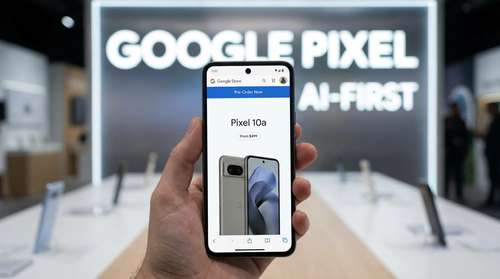Security researchers from Mysk Inc. have discovered that several popular iPhone applications, such as Facebook, LinkedIn, TikTok, and X/Twitter, are circumventing Apple's privacy regulations to collect user data via notifications.
These apps employ a sneaky technique that allows them to gather data even when users close the app, undermining their efforts to prevent background data collection.
According to the researchers, the collected data appears to be used for analytics, advertising, and user tracking across apps and devices rather than just notification processing.
While some companies deny any wrongdoing, these findings spotlight concerns surrounding developers' ability to collect user data at will.
The Concerning Trend of Data Collection
It's not surprising that apps strive to accumulate more data, but what's alarming is the ease with which dismissing a notification can trigger the transmission of unique device information to remote servers, as highlighted by Tommy Mysk and Talal Haj Bakry during their tests.
This raises questions about the extent of developers' power to collect user data on-demand, posing potential privacy threats.
Regrettably, the mentioned apps aren't alone in engaging in such practices. According to the researchers, this issue permeates the entire iPhone ecosystem.
Although Meta and LinkedIn's representatives claim that they are not misusing the information and that it is only being used for notification purposes, per Apple's developer guidelines, it is worth noting that Mysk's audits have previously revealed privacy concerns within Apple's system.
“Data that is collected is only used to confirm that a notification was successfully sent and, on a transient basis, to queue the app experience in case the member chooses to launch the app in response to the notification never shared externally.” A LinkedIn spokesperson said in a statement.
Apple's Pivotal Privacy Slip-Ups
Mysk's audits have previously exposed privacy lapses at Apple, contrasting their efforts to assure iPhone users of data confidentiality.
In October 2023, Mysk revealed that a highly-touted iPhone feature intended to protect WiFi address details falls short of the company's privacy claims.
Furthermore, Apple faced multiple class action lawsuits in 2022 after Gizmodo reported Mysk's discovery of Apple's data collection activities, even when users had enabled an iPhone privacy setting supposedly disabling the sharing of device analytics.
The collected data appears to be exploited for "fingerprinting," a tactic companies employ to identify individuals based on seemingly insignificant information about their devices.
Thus, this bypasses privacy protections and enables companies to track and target users with personalized ads, contrary to Apple's explicit prohibition.
This unethical practice persists despite the numerous privacy settings and regulations on iPhones and other Apple products, granting users control over their identification and data collection.
Powerful Privacy Enhancements in iOS 17
In iOS 17 and WatchOS 10, Apple introduces NameDrop, a new method for effortless exchange of contact information between iPhones and Apple Watches.
This empowers users to determine which information is shared via AirDrop without needing a separate contact card.

Moreover, iOS 17 fulfills a frequent request by incorporating a pronoun field in the Contacts app.
While incorporating preferred pronouns into email signatures and social media profiles has become common, Apple streamlines this process by offering a preset field in the Contacts app.
Previously, users had to manually add pronoun preferences to the notes section of a contact's profile.
This new feature makes pronoun preferences easily accessible, providing a seamless experience.
Wide Language Support and Privacy Assurance
Apple's pronouns field isn't simply a text box; users can choose from various language options.
Additionally, Apple provides clear instructions on using three different pronoun forms with grammatical accuracy.
Apple has established a comprehensive privacy policy for pronoun entries to ensure users' peace of mind.
The recent disclosure of popular iPhone apps gathering user data through notifications and violating Apple's privacy regulations has raised concerns regarding the extent to which developers retain data collection capabilities.
Although some companies deny any wrongdoing, these findings highlight a common issue within the iPhone ecosystem. However, Apple must take steps to address these concerns and maintain its pledge to privacy and protect users' data.




